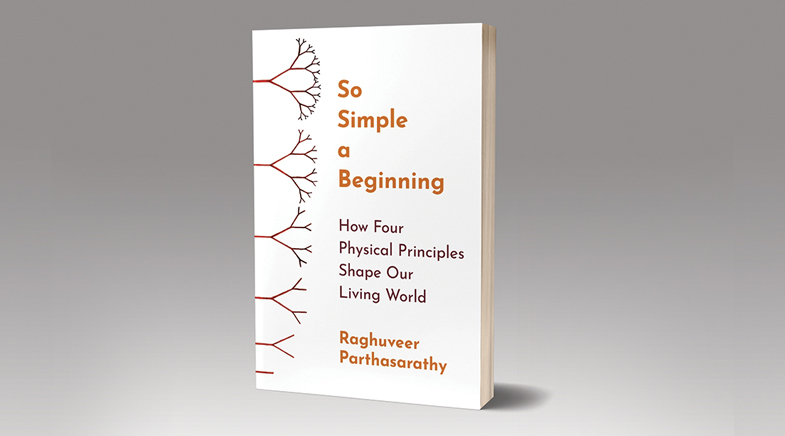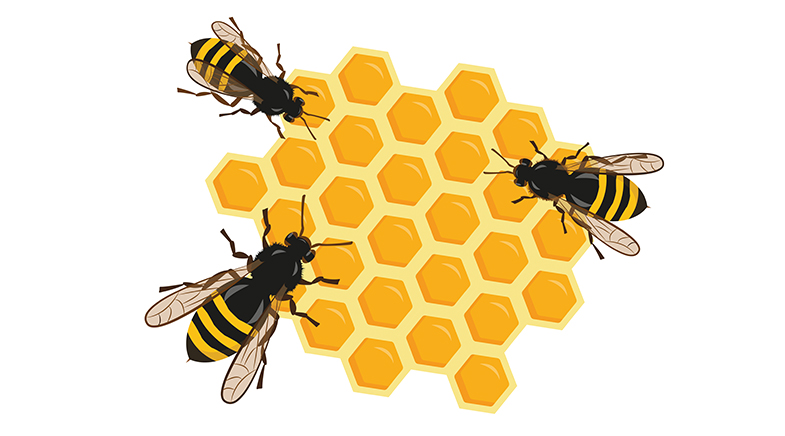Soil, tests and cells
-
- from Shaastra :: vol 03 issue 10 :: Nov 2024

Start-ups focus on a diagnostic platform for human and animal healthcare, cultured meat and soil dynamics.
D-NOME
Founders: Divya Sriram and Sujoy Deb
Year: 2021
Big idea: To develop a molecular diagnostic platform for human and animal healthcare
During the COVID-19 pandemic, Divya Sriram saw the challenges in molecular diagnostic technologies and felt there was a need for platforms that offered affordable and quick test results for infectious diseases. Divya, who worked on infectious diseases in her postdoc programme at Johns Hopkins University School of Medicine after a PhD from the Centre for Cellular and Molecular Biology (CCMB) in cancer research, realised the problems that diagnostic laboratories and hospitals faced in scaling up molecular techniques such as RT-PCR (Reverse Transcription-Polymerase Chain Reaction).
She teamed up with Sujoy Deb, whose expertise is in molecular biology and genomics, and designed a scalable solution for quick screening and early diagnosis of infectious diseases. Deb had done his PhD at the CCMB after conducting research at the Indian Institute of Science, Bengaluru.
Divya got the Biotechnology Ignition Grant from the Biotechnology Industry Research Assistance Council and incorporated D-NOME — which stands for Decoding Genomics — to decode genomic signatures of pathogens. She explains that the enzymes used in the isothermal PCR technology had a few problems. So, they decided to engineer more effective enzymes.

"In our body, you have cells growing every day, you have PCR happening every day, but you do not require an electronic machine. It is happening inside a cell at ambient temperature," she says. She wondered why the pathway inside the cell could not be replicated and carried out synthetically. The company is building synthetic circuits in a tube and replicating all that happens inside the body, she explains. A body requires 20-40 components for that circuit to be built, but the company does it with four or five components because these units are engineered better. "We are protein engineers who are building these synthetic circuits in a tube and reducing the complexity of a test," she adds.
Any PCR test, according to her, has complex hardware. Because D-NOME's enzyme can carry out the same function at room temperature, it eliminates these complex structures from the machines. She adds that the company has built a pocket PCR device that resembles a cell phone and can be used to carry out the tests.
Hyderabad-based D-NOME's technology can look at any genetic signature and at infectious diseases irrespective of the pathogen. The company got the proof-of-concept ready and tested it out with human clinical samples. She says D-NOME has used the diagnostic platform for poultry and animal healthcare applications. The company has validated the enzyme and is in the process of freezing the design for the diagnostic device. It has signed up with hospitals to test the solution for respiratory diseases and will shortly start field trials in aquaculture and poultry.
MyoWorks
Founders: Nihal Singh and Shubhankar Takle
Year: 2020
Big idea: Developing products for the cultivated meat industry
Friends from the time they were in school in Nashik, Nihal Singh and Shubhankar Takle love a good meat dish. Not surprisingly, when Singh and Takle, who has a Bachelor's in Mechanical Engineering from Purdue University, decided to work together, they thought of exploring the cultivated meat industry.

The lab-grown or cultured meat industry is still at a nascent stage worldwide. It involves cultivating animal cells in a laboratory in a structure similar to that of animal tissues, which helps in replicating the sensory and nutritional profile of conventional meat. This method of producing meat reduces the need to raise animals for food.
According to Singh, their primary product is a scaffolding solution. MyoWorks uses mycelium, which is the root structure of a mushroom. It mimics the root environment — which is away from direct sunlight and in a high CO₂ environment — in the laboratory to develop 2D and 3D scaffolds akin to meat. "We use a proprietary method that gives the desired shape, and we make the three-dimensional structure in the form of a piece of meat. We are trying to provide the texture and the shape of meat, which is called the scaffold," he says. Mycelium provides a conducive surface for cells to grow. The animal cells adhere to the scaffold and proliferate over time. An end consumer will consume a product grown in the lab with the scaffold embedded inside.

It will be a business-to-business operation for MyoWorks, which will sell its product to companies that cultivate meat. It will be a food-safe, food-relevant product, says Singh, whose family is in the food manufacturing business. MyoWorks will also make a microcarrier from mycelium for what is called unstructured meat. Microcarriers are 0.3-0.4 mm bits that allow adherent cells to attach to them and grow.
The company is still in the R&D stage and is incubated at the Society for Innovation and Entrepreneurship (SINE) at the Indian Institute of Technology Bombay. According to Singh, their product has been tried out by a handful of customers.
He believes that some science problems need to be solved before the cultivated meat sector can take off. For instance, the solutions and products developed in a lab have to be scaled up in an appropriate manufacturing set-up. Cultivated meat needs pharma-grade material as cell culture is involved. According to him, one of the key challenges is replicating the multi-cellular complexity in the animal meat architecture. Advancements in the scaffolds will play a big role in the development cycle of cultured meat products to replace the carbon-heavy meat industry.
AquaSynthesis
Founder: Dev Pratap
Year: 2021
Big idea: Integrating hydroponics with soil dynamics to cut production costs
When Dev Pratap saw farmers struggle with the vagaries of nature and degraded soil conditions, he decided to devise a solution that would help them deal with both issues. Though hydroponics was a time-tested technique, Dev, who has a Bachelor's degree in Biotechnology from the erstwhile Allahabad Agricultural Institute, wanted to use his knowledge of soil dynamics to grow different varieties of plants. He did not want to confine himself to growing just leafy vegetables that hydroponics was traditionally used for.
Through AquaSynthesis, the company that he founded and which is backed by the Indian Institutes of Technology in Delhi and Kanpur, Dev has been experimenting with plants. AquaSynthesis has introduced a sub-irrigation layer that mimics natural soil dynamics. Traditionally, hydroponics uses a water-based nutrient solution rather than soil. The AquaSynthesis system enables precise water regulation around the root zone, making it possible to replicate any soil type from different geographic regions.

In hydroponics, the roots dangle in the nutrient-rich water, which is not how plants grow naturally. The natural process is for the roots to dig into the soil to draw nutrients and water. AquaSynthesis developed a perforated sub-irrigation layer below which lies the irrigated layer. The roots touch the sub-irrigation layer and draw the required nutrients and water.
"We are able to copy the natural environment of how the soil works," he says. "By solving half the problems faced by traditional hydroponics, AquaSynthesis allows for the growth of water-sensitive crops, which was not previously possible," he says.
AquaSynthesis is working on technologies that ensure agriculture thrives despite extreme climatic conditions.
Still at a lab scale, the company has successfully grown at IIT Delhi crops such as tomatoes, potatoes, lettuce, bell peppers, blackberries and green fodder. The company has been able to significantly cut down the cost of production because of the sub-irrigation layer that substantially increases the yield.

AquaSynthesis is now growing saffron, a valuable herb found in India in Kashmir. It has established a root system for the saffron plant, with which it has been able to achieve higher flowering from each bulb than is usually accomplished on the fields. The average flowering that is achieved per bulb is one, while AquaSynthesis has been getting 1.7 per bulb, and is working on increasing this, he says. "We are using gene expression technology. We identify specific genes through certain cycles in the plant, and we help the gene express itself," says Dev.
AquaSynthesis is working on technologies to ensure that agriculture thrives amid extreme climatic conditions. One such development is a temperature-adapting greenhouse, capable of maintaining temperatures at 25°Celsius even during scorching summers. The company will also look to grow pharmaceutical herbs found in the lower reaches of the Himalayas.
Have a
story idea?
Tell us.
Do you have a recent research paper or an idea for a science/technology-themed article that you'd like to tell us about?
GET IN TOUCH














